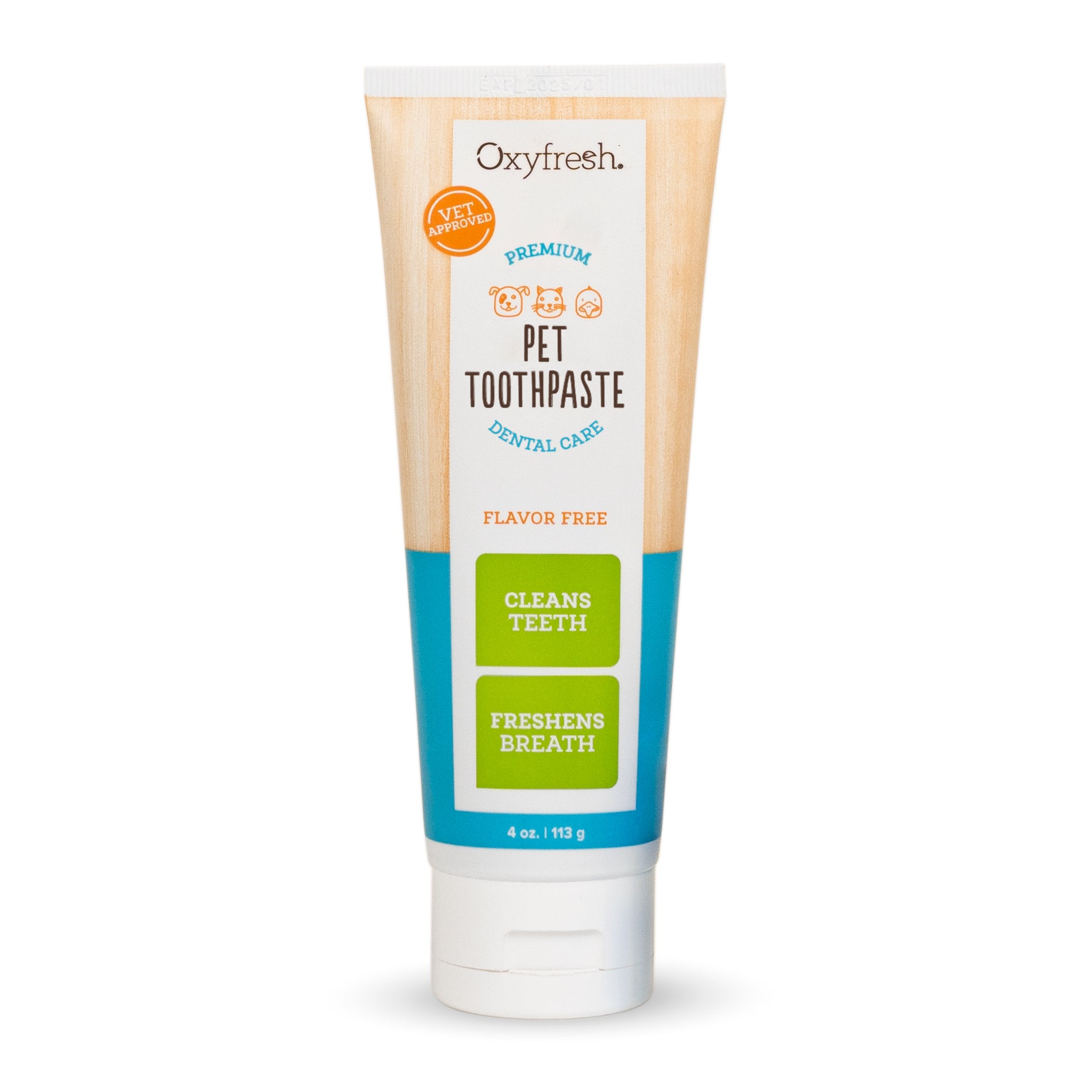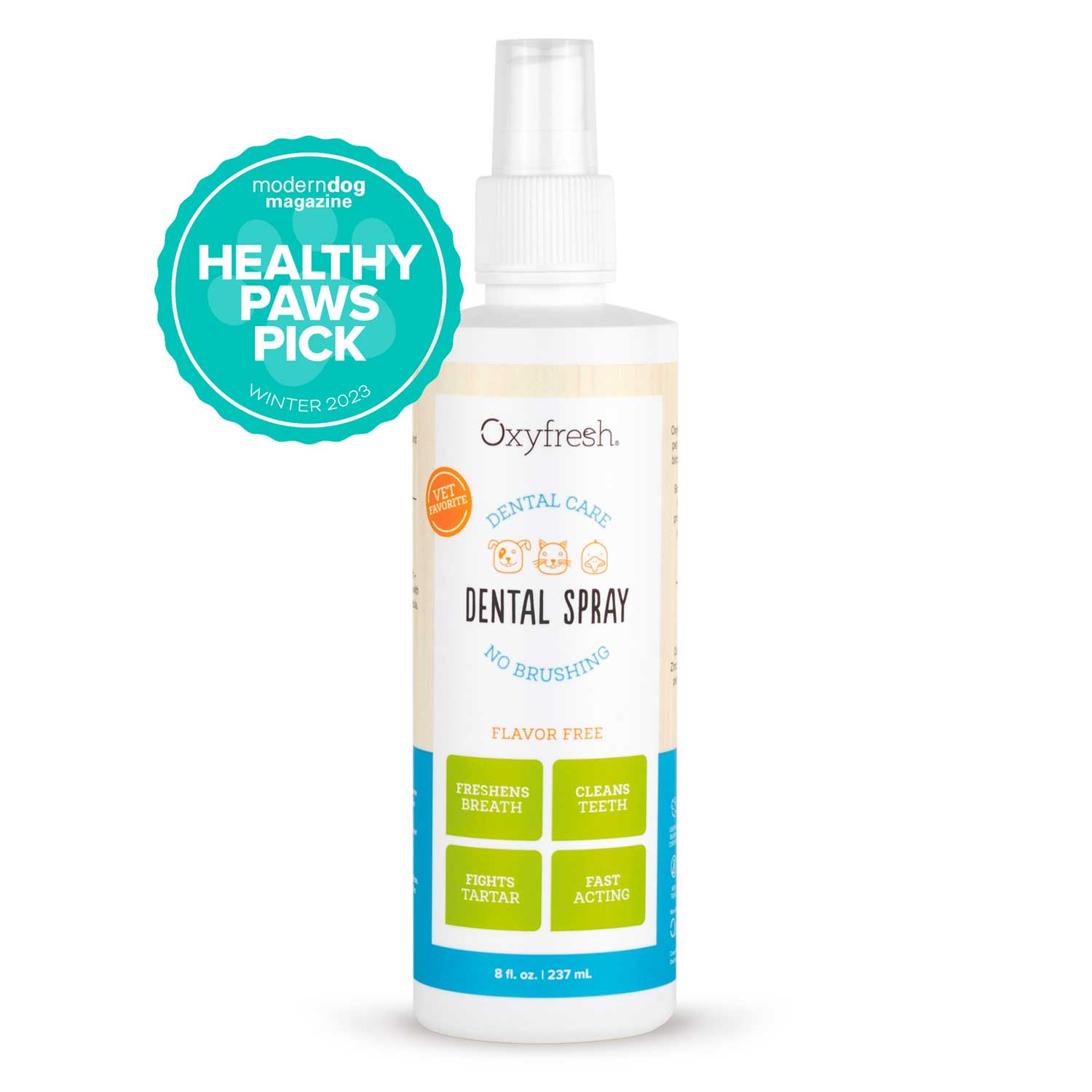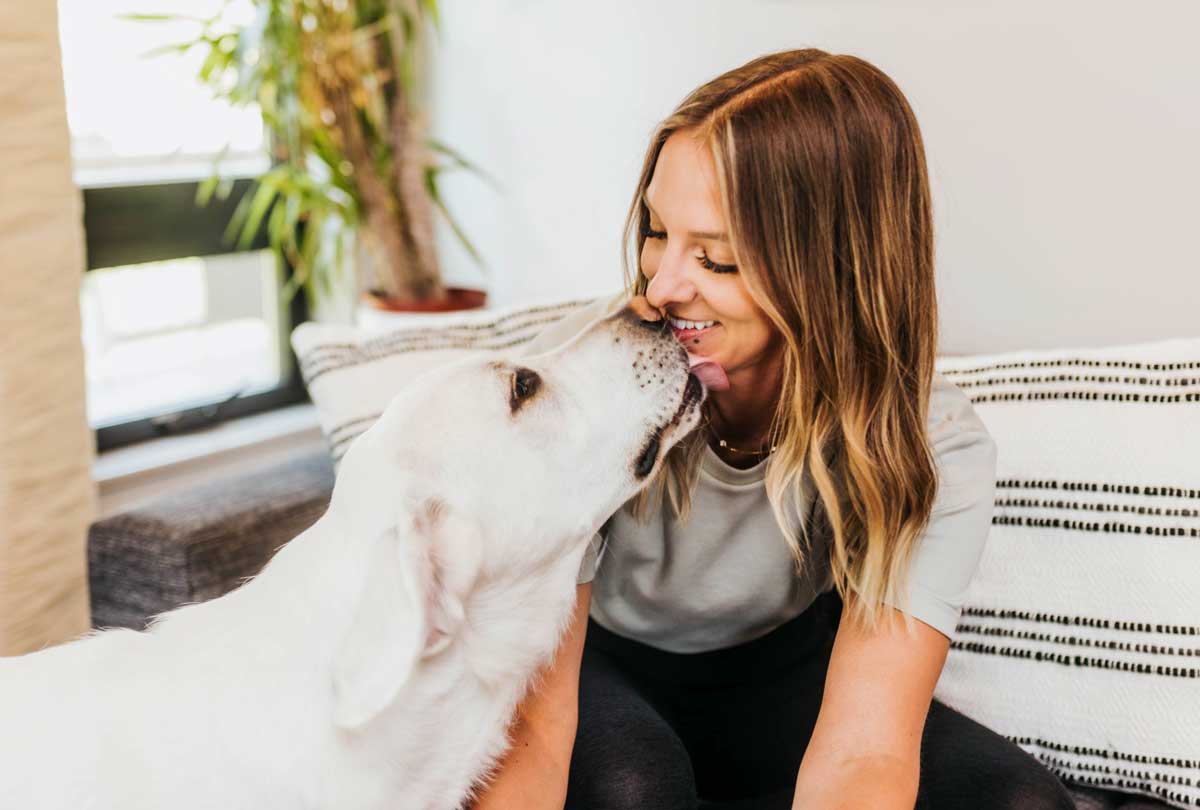Bye-Bye Stinky Cat Breath
Ah, it’s a blissful weekend morning and you’re finally able to sleep in. That is, until – yawn! – your cat gets right up in your face and treats you to a blast of stinky cat breath. YUCK.
"Hey, it’s not my fault!" hisses the cat. Just like if you never brushed your own teeth or used mouthwash, no one would want your close-contact yawns ... no matter how good you were at chasing mice!
Fortunately, a cat breath freshener could be all you need to turn your cat’s breath around ... and selfishly get some more beauty sleep.
Why Does My Cat’s Breath Smell?
Stinky cat breath (also known as cat halitosis if you like to use big words) is most often caused by gum disease. An astounding 7 in 10 cats have gum disease by the age of three.
It’s easy to hear the word "disease" and freak out, but please don’t worry. In its early stages, gum disease is 100% reversible when you adopt good oral care habits at home. (Bad breath is often the first warning sign of a problem.)
However, if gum disease is left to run amok in your cat’s mouth, it can lead to severe inflammation, tooth loss, and even take years off your cat’s life. How can you tell if your cat is in the early stages of gum disease? Their gums will still be pink (not red and inflamed) and the teeth will be mostly clear of yellow-brown tartar.The process of plaque hardening into tartar starts in just 24 hours. That’s why your focus should be on removing plaque quickly from your cat’s teeth, ideally every day.
Other Causes of Stinky Cat Breath
While gum disease is the most common answer to "why does my cat’s breath smell?" there are other scenarios and conditions that can cause a less-than-pleasant stench to your cat’s breath.
- Diabetes – breath would have fruity smell
- Kidney disease – breath would have ammonia smell
- Feline stomatitis
- Liver disease
- Poor diet
- Something lodged in teeth (e.g. string or piece of food)
- Infections
- Kitten is teething
- Oral trauma (e.g. electric cord burn)
Also, keep in mind, occasional bad breath happens in cats, just like it does to us if we chow down on garlic bread or roasted broccoli. If your cat just ate a boatload of tuna, their breath will naturally smell a bit, well, fishy.
If you notice that your cat isn’t feeling good, like a change in appetite, increased lethargy, or gastrointestinal issues, always play it safe and make an appointment with the vet.
Cat Breath Fresheners (All the Cool Cat Parents Are Doing It.)
Cats aren’t like us. They can’t pop a mint into their mouths and call it good when they need a fresh-breath boost.
And what about their teeth? Even the best cat dental chews should never take the place of a dental routine.
(Gulp.) But what if you’d rather get your own teeth pulled than try to brush your cat’s teeth?
We hear ya! That’s why cat breath fresheners are such a life (and breath) saver! They’re an easy, no-brush way to get your cat's smile in great shape ... you just add to water!
Oxyfresh Pet Dental Water Additive is the go-to cat breath freshener trusted by cat parents and veterinarians alike.
Only Oxyfresh has the proven, proprietary bad-breath fighter Oxygene® to stop bad cat breath in its tracks while fighting plaque. The result? Fresher breath AND a healthier smile every time your cat takes a drink of water.
Unlike other cat breath fresheners, there’s no mint, tea or other odd flavors that picky cats will turn their noses up at. It’s completely tasteless, odorless and non-toxic! Best of all, it gives cats a leg up against gum disease, so you can enjoy more years of fresh cuddles!
Tuna, anyone? Now that you're in the know about this top dental trend, how ‘bout we crack open a can of tuna and celebrate your cat’s soon-to-be fresh breath? (Your cat votes yes on this.) Look at that face ... so worth it!









